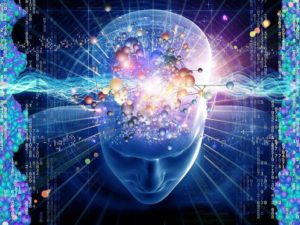You Are Able To Maximize Your Happiness Now…So Why Don’t You?

Have you ever felt like you have so many choices to review that there’s no way you can ever choose and now you are paralyzed? You wish you didn’t have to choose.
But at the same time, you would never choose to have less options. We all think that having options is better than not having options because it gives us the potential to create our future as we see it best – if we make the right choice.
Please watch the following TED talk:
I want you to ask yourself again the age-old question: What is happiness and is that something I’ll ever have? How do you think you’ll get there?
In recent centuries the utilitarian definition given by John Stewart Mill has dominated the western world:
“The creed which accepts as the foundation of morals, Utility, or the Greatest Happiness Principle, holds that actions are right in proportion as they tend to promote happiness, wrong as they tend to produce the reverse of happiness. By happiness is intended pleasure, and the absence of pain; by unhappiness, pain, and the privation of pleasure.” (Mill, Ch. 2 of Utilitarianism)
So if we are trying to maximize pleasure for ourselves…we can only do that by getting the right combination of ‘pleasure creating’ activities. Naturally, therefore, someone who has gets more pleasure from Coke than Pepsi but has no access to it, necessarily going to be less happy in that respect than he could have been.
I believe Schwartz is part of a new wave of scientists who are beginning to touch on age-old wisdom, despite his agreement with Mill that happiness is found in the ‘pleasure creating’ — whether by deliberate choice or by delightful surprise. Clearly pleasure itself (things as such being the source of our happiness) is not the right answer. But is therefore the delightful surprise mentioned in the video the answer?
It is not, because even this is temporary or fleeting. The next logical move by scientists would then be to maximize delightful surprises, an idea which already commonly takes the form of bumper stickers “make someone’s day” as a sort of humanistic promotion of random acts of kindness. If we ask the question of whether happiness is possible, the true issue is far deeper:
“But Humanists in modern times, largely on the pessimistic side, deny there is any end, purpose or value to the universe or human life and therefore put up no positive alternative to its technological transformation…technology [in the sense of creating options to reduce displeasure] is pessimism in an optimistic disguise; it proposes in self-contradiction to its essential gloom what appears to be a hopeful enterprise — the transformation of human nature to human use. Because of the fact that life means nothing and that everything will eventually come to nothing according to the doctrine of evolutionary doom, we must act, they say, as if that were not so for the time being…but someday soon, although you cant take it with you [your options], you can at least indefinitely postpone the agony of having to go, because science is about to conquer most of the power of death; we are about to synthesize something like the Tree of Life and eats its frozen fruit forever living a millennium at least between the gaping jaws of an evolutionary yawn.” (Restoration of Christian Culture)
But Jon, why not try the next step of creating delightful surprises? If it weren’t for the fact that this is a distraction from the purpose of life, then I suppose there would be nothing wrong with it. As a person who believes permanent happiness, or even maximizing it is not the purpose of this life, it is like a dog chasing his tail. I used the word ‘wrong’ because goodness exists apart from how we feel, or even make others feel (a big drive for many to commit random acts of kindness). This goodness is that at which all things aim, classically given the name of God himself. Am I saying believe in God so you can be happy? That would be making God into a Coke, wouldn’t it. You should only believe in it if it is true, but that is another topic.
Every culture has undying writings recognizing that fulfilling a human being is impossible with material things. Many eastern traditions solve the problem by trying to eliminate the desire for things, which leads to a desire-free state (nirvana). But while this is theoretically a solution to the question of happiness and quite insightful (a better one at that than materialism) it doesn’t touch on whether its important to make an actual contribution to the goal of human life.
Barry Schwartz I think has helped many people with his video “The Paradox of Choice” but if there were one edit I could make it would be to ask “Why am I or we living?” before “How can I or we be happy?”
Sound off below, or look back at the featured image if it helps you to lighten the mood.




